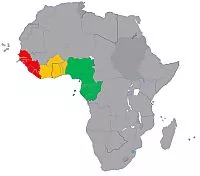EVENT
The world was shocked last week to receive a news of closure of all refugee camps in early May in Kenya. Principal Secretary of the Interior Ministry, Dr Eng Karanja Kibicho, announced that the government would no longer host refugees and would close refugee camps "within the shortest time possible" because of "immense security challenges". This includes Dadaab refugee camp, the largest refugee camp in the world, home to more than 300,000 people on the Kenya-Somalia border.
MAIN FINDINGS
Harsh Reality for Government
In a statement that has received harsh criticism from
international human rights organisations, opposition parties and
other civil society organisations, Kibicho stated that the
government of Kenya had shouldered heavy economic, security and
environmental burdens by hosting refugees for over 25 years. As
subtext for this complaint, there is the 20% cut in European Union
funding of the African Union Mission in Somalia (AMISOM) this
year1, continuous complaints of inadequate financial
support for the refugee camps and a muted response from the broader
international community to both2.
Kibicho further stated that the camps in northern Kenya are being
shut because of threats posed by al Shabaab and other terror groups
e.g. in January 2016, the BBC reported that at least 180 Kenyan
troops were killed when al-Shabab attacked their base in the
southern Somali town of el-Ade (though the Kenyan army disputed the
number of casualties). For all that, the security explanation
appears weaker than the financing argument. We are not, for
instance, witnessing the kind of anti-Somali security swoop we saw
in Nairobi's Eastleigh neighbourhood in 2013 after the Westgate
Mall terror attacks (and which one might expect where concerns are
similarly elevated).
Domestic and External Response
Principal opposition part, the Orange Democratic Movement (ODM),
yesterday warned the government against closing refugee camps and
sending back more than 400,000 refugees. It said the move cannot be
"morally, politically or economically right".
Reacting to the news of the closures, international organisation,
Human Rights Watch (HRW), said that Kenya's announcement that
it would no longer host refugees was contrary to principles it has
pledged to respect. "In a single breath, the Kenyan government
recognises that the Somalis it has been hosting for nearly 25 years
are still refugees, but then states it's finished with
them," said Bill Frelick, Refugee Rights Program Director at
Human Rights Watch.
Medical charity Doctors without Borders (MSF) has urged the Kenyan
government to reconsider its decision to shut down the Dadaab
refugee camp, warning that closure would risk the lives of more
than 300,000 refugees. In a statement released late on Friday,
Liesbeth Aelbrecht, MSF Head of Mission in Kenya, said the move to
close the world's largest refugee camp "oncemore
highlighted the continued and blatant neglect of millions of
refugees around the world".
United Nations High Commissioner for Refugees (UNHCR) says that,
under the principle of non-refoulement3, states are
prohibited from forcibly returning people to a place where they
would be at real risk of human rights violations. Kenya is a party
to the 1951 Refugee Convention and the 1969 Organisation of African
Unity Refugee Convention.
OUTLOOK
The decision by the Kenyan government to close the refugee camps
will be a breach of the non-refoulement law which bars countries
from forcibly returning refugees to their home countries. Again, if
the camps are closed, it will lead to a serious security threat in
East Africa since refugees are likely to push towards neighbouring
Uganda and Tanzania but as to whether these countries are prepared
for such an influx is doubtful. There is also the danger of
insurgents taking advantage of the vulnerable situation if no
proper contingencies are put in place.
At present, it looks as if Kenya is resolute in its ambition of
closing the camps and in so doing, risks souring relations with the
international development community and placing pressure on its
neighbours. That said, there may yet be a change of course but
neither international opprobrium, civil society or opposition
ODM/Cord protests are likely to be the decider. Instead, pivot
points include:
- International community response i.e. European Union and United Nations decisions regarding funding of AMISOM and Dadaab
- Amendments to AMISOM arrangements increasing Kenyan influence
- Elections in 2017 and the influence of vote blocs in the Somalian counties of Garissa, Wajir and Mandera.
Footnotes
1 http://www.theeastafrican.co.ke/news/European-Union-Amisom-funding-to-continue-despite-cut-/-/2558/3183206/-/enu45xz/-/index.html
2 http://www.msf.org/en/article/kenya-humanitarian-aid-must-be-prioritised-dadaab-camps-despite-return-refugees-somalia
3 Article 33 (1) 1951 Convention: No Contracting State shall expel or return ('refouler') a refugee in any manner whatsoever to the frontiers of territories where his life or freedom would be threatened on account of his race, religion, nationality, membership of a particular social group or political opinion."
The content of this article is intended to provide a general guide to the subject matter. Specialist advice should be sought about your specific circumstances.

